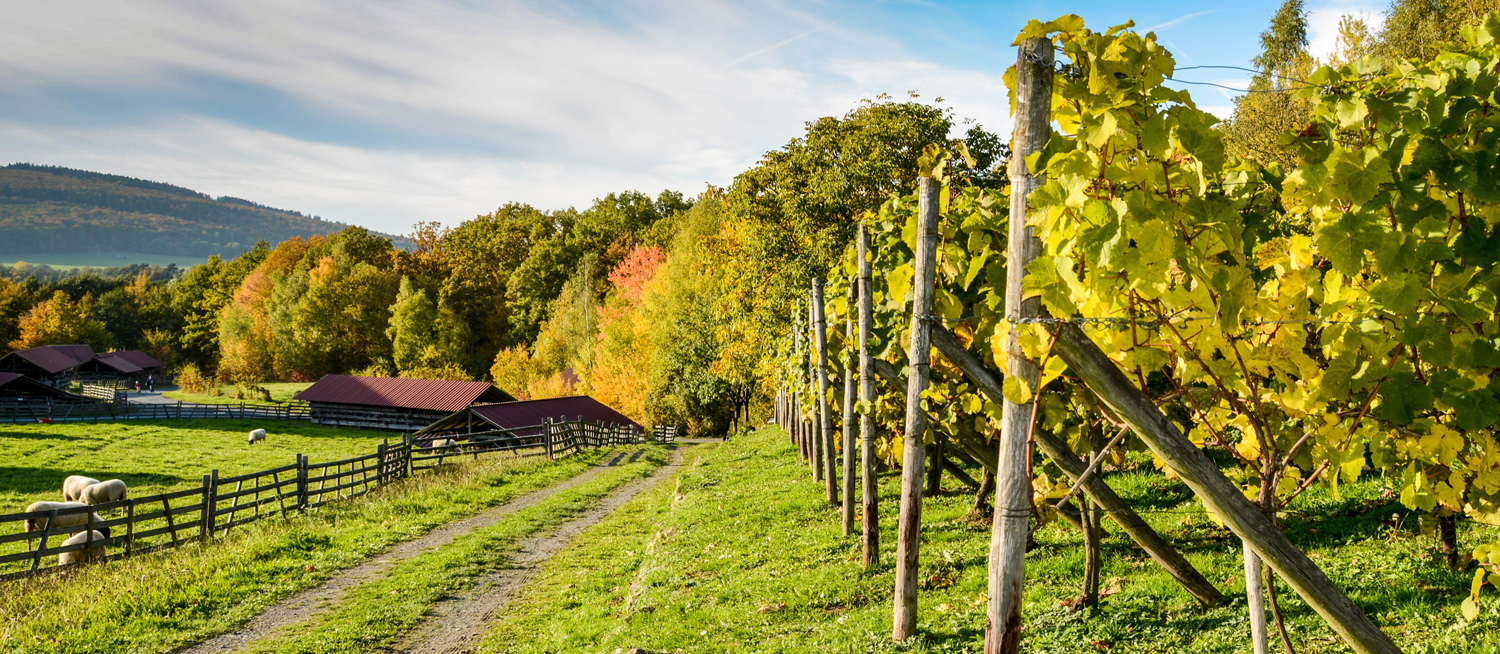Vineyard

Planted: 1987
Vines are grown on an area of about 3,600 hectares in Hesse today. The Rheingau wine growing area accounts for about 3,160 of those, the Hessische Bergstraße region for about 440 hectares. Viticulture was first documented in the Rheingau region in the 8th century. Today, the Riesling grape prevails at about 80 percent here. Besides its superior quality, it is highly frost-resistant and grows well even in cooler climates.
Although viticulture is significant only in south-western Hesse today, in the past regional vineyards were fairly widespread. To this day, the names of streets and stretches of land, such as Am Weingarten and Im Wingert (both meaning By the Vineyard) are evidence that vines were grown in many parts of Hesse. To illustrate this traditional land use, the Hessenpark Open Air Museum has cultivated the only vineyard in the Taunus region. The small site comprising 350 vines has been farmed in accordance with the EU regulation on organic production since 2013. It shows various traditional training methods for the sturdy Riesling vines. The yield and quality are highly dependent not only on the characteristics of the soil but also on the weather. The museum’s vines growing on the Anspacher Grund vineyard face some adversity compared to those growing in the milder climate of the Rheingau; however, in good years the museum has succeeded in making absolutely palatable wines.
Certain tasks recur every season in the vineyard. The work on the vines themselves, that is, cutting back the vines according to the training method, tying the fruiting canes, and pulling the leaves, all have to be done. Furthermore, the ground vegetation has to be mowed regularly. After self-pollination, the vines require about 90 to 120 days to grow the grapes to full maturity, ready for their mid-October harvest. The harvested grapes are crushed and pressed, the juice is fermented, and after being racked off twice (to eliminate the yeast sediments from the wine) it is bottled the following May.
Our wine is made in the simple and traditional way, without filtration or fining. The Riesling presents as powerful and dry with a very strong sense of terroir. The wine made at the museum is not available for sale and is served to be sampled on special occasions only.

Mit dem Laden der Karte akzeptieren Sie die Datenschutzerklärung von Google.
Mehr erfahren




